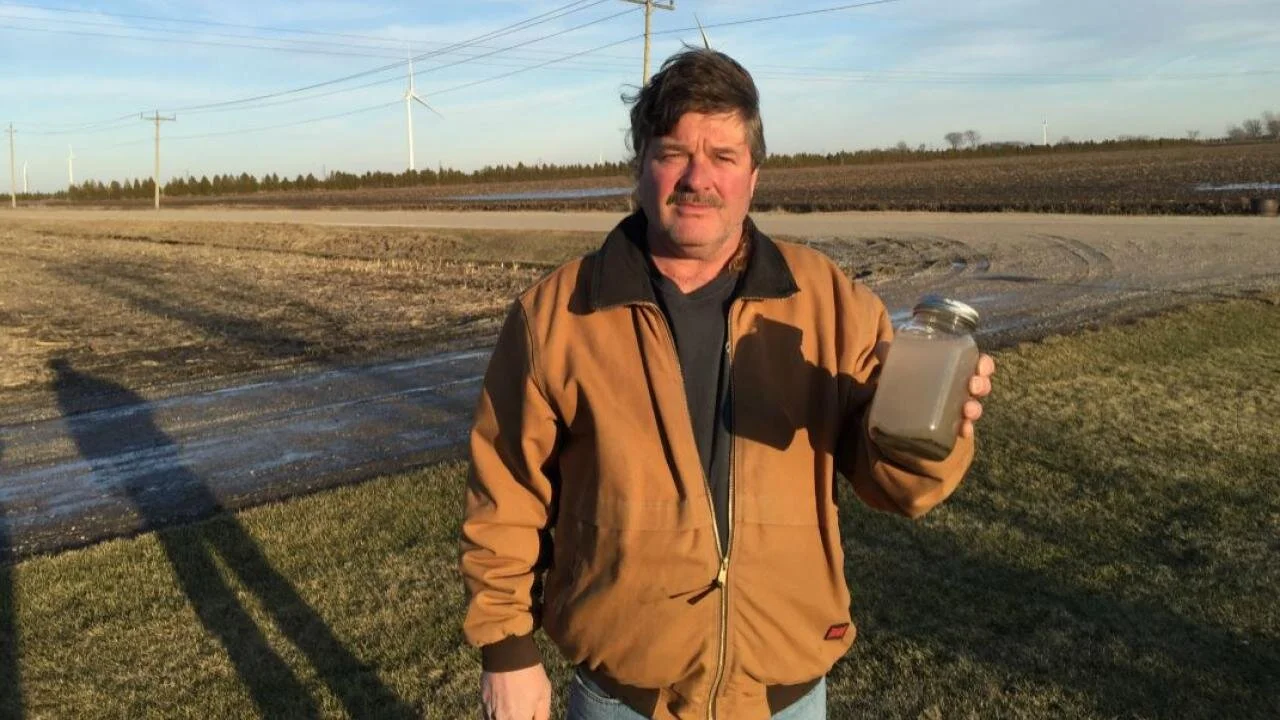Grades: 7-12
Time: 2-5 hours
1. Have students work individually.
2. Provide the students with the "How Can You Help?" handout.
3. Have the students define the problem and determine what they know about the problem, what they need to learn more about, and where they need to look to find information.
4. Students conduct research, find information, and work towards deciding what they should do. The teacher acts as a metacognitive coach, serving as a model. The teacher thinks aloud with students and practices behaviour they want their students to use. Students should become used to metacognitive questions such as "What is going on here?" "What do we need to know more about?" "What have we learned?" The teacher should encourage students to use questions and to take responsibility for the problem.
These are some possible disclosures to give the students as they work:
DISCLOSURE 1
What questions would you ask the concerned rural homeowners when they email you and/or phone you?
DISCLOSURE 2
Learn about groundwater and aquifers, consider what can affect them. Also, learn about wind farms and wind turbines, how are they constructed? Could the wind farms and wind turbines be affecting the groundwater? If so, in what way? Could anything be done to mitigate the effects?
DISCLOSURE 3
Consider your role as the Executive Director of a charity that focuses on Canadian Drinking Water Quality issues and solutions - should you help these rural homeowners? If so, how will you help them?
5. Students present their information, their potential solution(s) and support for their solution(s). The teacher completes the Example Rubric for Grading Problem-Based Learning Projects (or similar) to grade the students' work. The students can present their information, their potential solution(s) and support for their solution(s) in writing and/or as an oral presentation.
6. If desired, the students complete the Problem-Based Learning Reflection Questions sheet and/or the questions could be used as a Think - Pair - Share activity (quietly think about how you will answer the questions, discuss the responses with a partner or small group, and then groups share their answers with the class), or simply discussed as a whole class.
Information for the Teacher
Local rural residents believe the problems with their well water are caused by the interaction between local wind farm development and the area's unique geology. The sedimentary bedrock - which is dark in colour and fine-grained - is found beneath most of Chatham-Kent. It is known to contain sulphur, carbon, and toxic heavy metals. Article with more information: https://www.tvo.org/article/wind-energy-may-be-green-but-the-water-in-chatham-kent-is-brown
change.org Water Wells First! Stop the vibrations and save our wells! https://www.change.org/p/municipality-of-chatham-kent-council-water-wells-first-stop-the-vibrations-and-save-our-wells
Ontario to investigate link between wind turbines and well water quality:
https://www.windconcernsontario.ca/2019/07/20/ontario-to-investigate-link-between-wind-turbines-and-well-water-quality/
Article about the health hazard investigation: https://windsor.ctvnews.ca/health-hazard-investigation-launches-in-chatham-kent-1.4515794?cache=sazhusyrecmk%3FclipId%3D1921747
Wind turbines and water wells: opinion (Ground Water Canada): https://www.groundwatercanada.com/wind-turbines-and-water-wells-opinion-4260/
Wind Developers Charged Over Water Wells Contaminated with Toxic Sludge: https://stopthesethings.com/2019/08/07/justice-prevails-wind-developers-charged-over-water-wells-contaminated-with-toxic-sludge/
Concern that wind turbines are polluting groundwater: https://torontosun.com/2017/09/11/concern-that-wind-turbines-are-polluting-ground-water
Ontario residents say wind farm vibrations threaten groundwater: https://www.producer.com/news/ontario-residents-say-wind-farm-vibrations-threaten-groundwater/
The Chatham Voice. August 22, 2017. Turbine director admits pile driving causes turbidity. https://chathamvoice.com/2017/08/22/turbine-director-admits-pile-driving-causes-turbidity/
Wind turbines not to blame for Chatham-Kent water woes, says report: https://farmersforum.com/western-ontario-wind-turbines-not-to-blame-for-chatham-kent-water-woes-says-report/

